Silverio Canto shows Dr. Drexler medicinal plants found locally in San Antonio village. Image courtesy of Dr. Michelle Watts.
By Dr. Kristin Drexler
Faculty Member, School of STEM
Editor’s Note: This article is part of a series on a research study being conducted by Drs. Michelle Watts and Kristin Drexler. Read their most recent article here.
Since April last year, Dr. Michelle Watts, Dr. Casey Skvorc and I have been conducting field research for a study about how the pandemic has impacted Indigenous peoples. Our research started with a trip to the Taos Pueblo in northern New Mexico with Watts, Drexler and graduate student Bridget Kimsey.
The study continued in Metlakatla Indian Community in Southeast Alaska with Watts, Drexler, Skvorc and undergraduate student Tara Shultz. Most recently, Drexler and Watts continued research in Central America, specifically Belize and Guatemala. Dr. Watts is the principal investigator of this University-funded study entitled “A Case Study Comparison of Pandemic Experiences of Indigenous Groups in the Americas.”
In my last article, I shared our experience in San Antonio, Belize. This is a small village in western Belize, whose residents are primarily Yucatec Mayan farming families. The village is also known for its artists and healers. During our research, I had the honor of interviewing Silverio Canto, a Mayan elder, who is the village healer and ethnobotanist.
Silverio Canto: Mayan Elder, Esteemed Medicinal Healer
At 68 years of age, Canto in best known as a medicinal healer of the village. He specializes in herbal remedies and ethnobotanical knowledge, providing healing services to the community of San Antonio. In the student film “Premicia: A Mayan Thanksgiving,” the film describes Canto as being “a family man, priest, retired teacher, herbalist, and Maya shaman. Through compassion, faith, and ancient knowledge of the jungle around him, Silverio Canto is hailed as one of the greatest medicine men in Belize.”
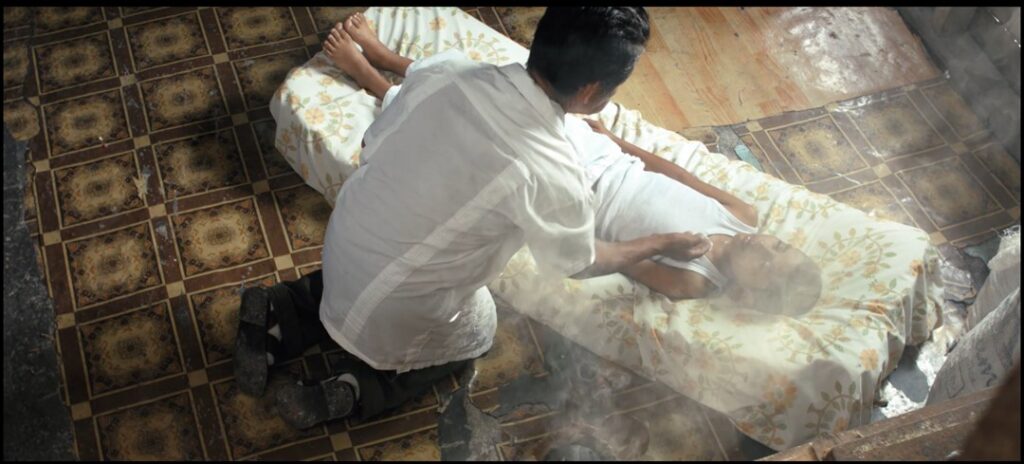
I’ve had the privilege of working with Canto previously on two films: Premecia: A Mayan Thanksgiving as part of the Belize Film School (2013) program with New Mexico State University, and then producing the award-winning short film, “Yochi” (2017) which was partially filmed in San Antonio village. In “Yochi,” Canto plays the role of the medicinal healer in attempt to heal the boy’s voice.
Canto’s COVID-19 Journal

During the interview, Canto shared with me his pandemic journal. He wished to share his writing so that others might understand how the pandemic impacted him and his small village of San Antonio.
Canto starts his pandemic journal entry with “When I heard on the news that this virus was in China, I said to myself, it is far away from us in Belize…” Read his journal entries to understand his response to the virus and its impact on him and his community.
In his journal, Canto explains that people who live in urban areas felt the pandemic more severely because those who live in rural small villages have more food security as they can grow “coco, sweet potato, cassava, pumpkin, beans, chaya, callaloo, corn, tortilla, local chicken, pigs, cattle, peppers, tomato, cabbage, carrots, watermelon and the list goes on. Not everybody, but the majority had something planted,” he wrote.
Read excerpts from his journal:
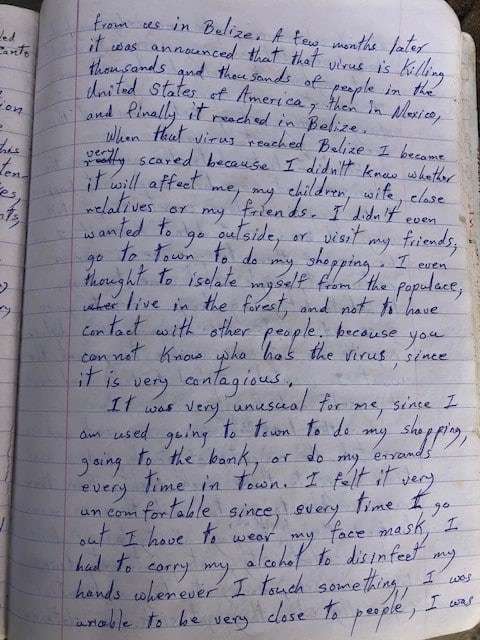
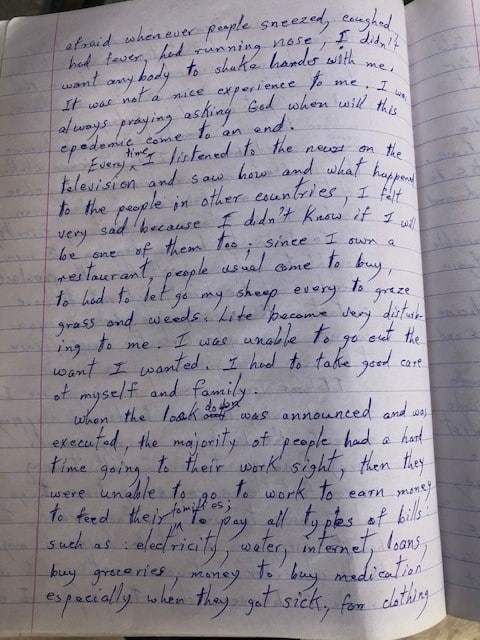
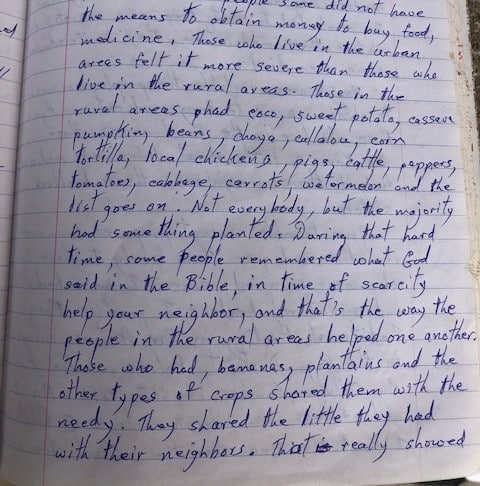
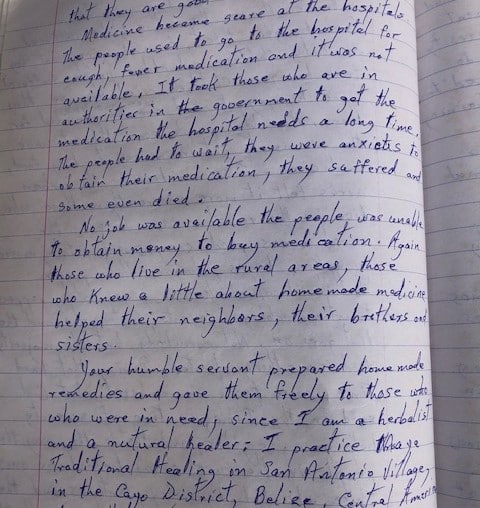
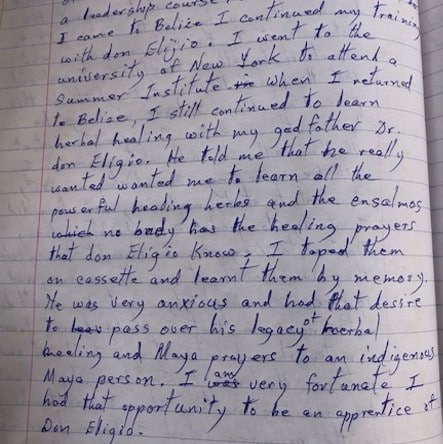
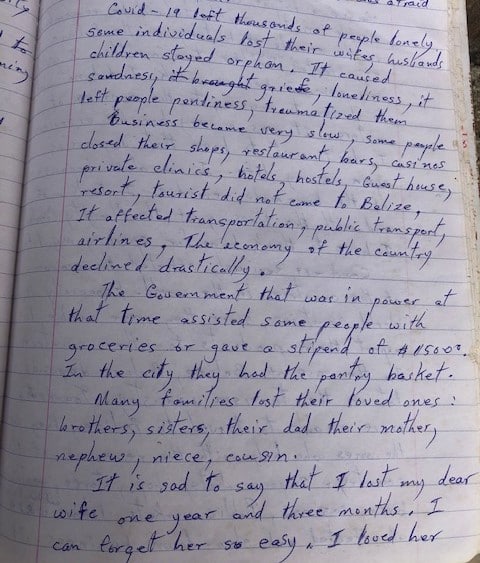
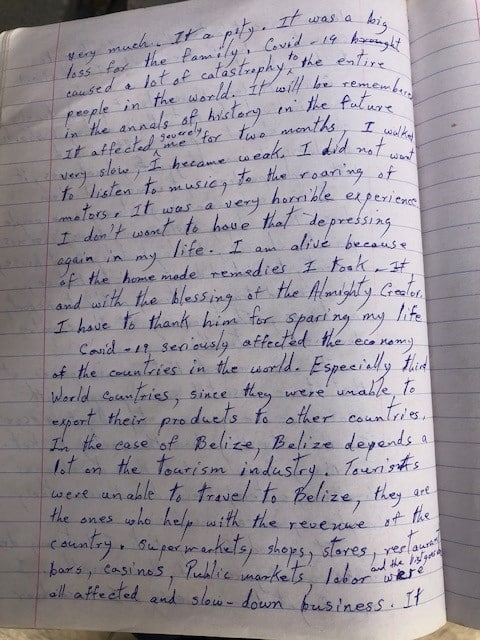
No Jobs, No Medicine, Personal Loss
In his journal, Canto discusses the lack of medicine and access to healthcare during the pandemic. He also wrote about using traditional medicine and relying on his expertise in herbal medicine during this time.
Sadly, Canto’s wife died from her medical condition after suffering from COVID-19. He also wrote about this devastating loss during a time when so many people were suffering from isolation and loss.
My interview with Canto is part of the University-funded study entitled “A Case Study Comparison of Pandemic Experiences of Indigenous Groups in the Americas.” We will use our COVID-19 interviews to assess community perceptions on health, cultural practices, livelihoods, the environment, governance and education during the time of the pandemic.
Also, we’ll determine how those areas connect to civil society, collective action, socio-ecological system changes, and resilience during the COVID-19 pandemic. My interview with Canto and having access to his journal entries from the pandemic will shed much light on the experience of the people in Indigenous communities like San Antonio village in Belize. We want to thank Silverio Canto and others in San Antonio for participating in this important study. Especially, thank you to Silverio for keeping and sharing this important journal with us.

Comments are closed.